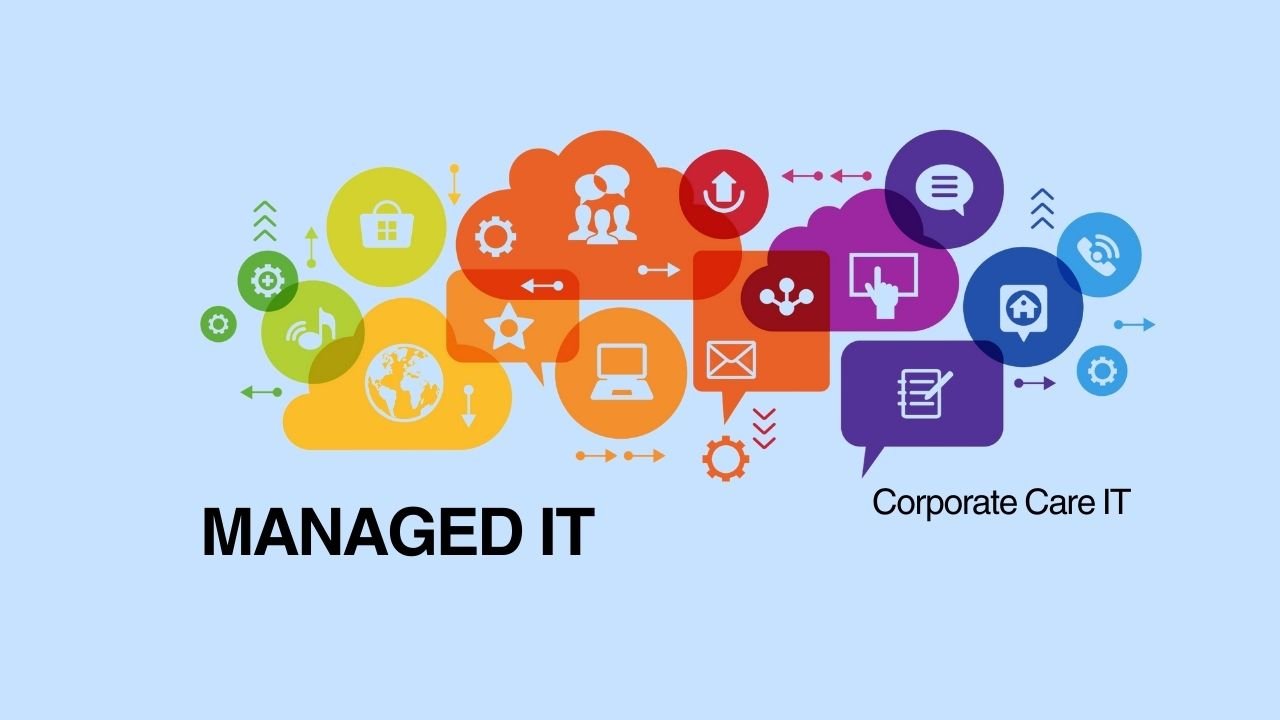What is Managed IT Service?
Managed IT services refer to the practice of outsourcing various IT-related tasks and responsibilities to a third-party service provider. These services are designed to proactively manage and support an organization’s IT infrastructure, systems, and processes. Under managed IT services, a dedicated team of experts, often known as a managed service provider (MSP), takes care of the day-to-day IT operations and maintenance on behalf of the client. The MSP assumes responsibility for monitoring, managing, and maintaining the organization’s IT infrastructure, ensuring its optimal performance and security. To make sure businesses are using the best technology available, actively monitoring threats, and keeping up with industry trends, managed IT solutions are made to be available around the clock.
For businesses looking to outsource all or some of their IT duties and functions to a third-party provider, IT-managed services have grown in popularity. The high demand for dependable and secure technology among today’s businesses is actually driving the managed services market to a booming state. For a variety of reasons, businesses choose to outsource the IT management and support for their operations. Some businesses lack the funds to dedicate themselves to the demanding IT requirements that today’s businesses must meet. Others might lack the necessary skills or simply require more time to concentrate on their core competencies before consulting experts for their tech needs. Whatever the reason, there are several advantages to using a managed service provider (MSP).
The surprising benefits of Managed IT Service
There is an established opinion that small businesses are the only ones who can benefit from partnering with managed service providers, but that is not true.
In fact, IT-managed services have already shown to be a practical and cost-effective solution for both small and medium-sized businesses.
Both large and small businesses, new and established ones, can benefit from managed IT services. Utilizing managed services has a few advantages, including:
- Proactive IT Support: Managed IT service providers take a proactive approach to IT support. They monitor systems, perform regular maintenance, and address potential issues before they become major problems. This helps to minimize downtime, improve system performance, and ensure that IT infrastructure is running smoothly.
- Reduce IT spending: Managed IT services help to reduce capital expenses and convert them into operational expenses. Variable cloud costs are associated with many managed services. You could save money on staffing and training with the help of these services. Other managed services typically have fixed monthly fees included in their pricing. Budgeting can benefit from using a managed service provider rather than creating internal IT operations because it can be less expensive and the costs are more predictable.
- Access to specialized expertise: Managed IT service providers typically have a team of skilled professionals with expertise in various areas of IT. They stay up-to-date with the latest industry trends, technologies, and best practices. By partnering with an MSP, organizations can gain access to this specialized knowledge and experience, which may not be available in-house.
- Strategic IT planning: Managed IT service providers often offer IT consulting and strategic planning services. They can assess an organization’s IT infrastructure, identify areas for improvement, and provide recommendations on technology investments and IT strategies. This helps organizations align their technology roadmap with their business objectives, improving efficiency and competitiveness.
- Reliability: Managed IT service providers employ proactive monitoring tools and strategies to identify and resolve IT issues before they cause significant disruptions. This helps to improve system reliability, minimize downtime, and ensure that critical business operations are not affected.
- Scalability and flexibility: Managed IT services provide organizations with scalability and flexibility. As businesses grow or experience fluctuations in IT needs, MSPs can easily adjust resources to accommodate changing requirements. They can quickly scale up or down IT infrastructure, add or remove users, and provide on-demand support, allowing organizations to adapt to changing market conditions efficiently.
- Enhanced security: Cybersecurity threats are becoming increasingly sophisticated, and organizations need robust security measures to protect their sensitive data and systems. Managed IT service providers offer advanced security solutions, including firewalls, antivirus software, intrusion detection systems, and encryption. They also monitor and respond to security incidents, conduct regular security audits, and implement industry-standard security practices to ensure data protection and compliance.
Overall, managed IT services provide organizations with a cost-effective, reliable, and secure way to manage their IT infrastructure while allowing them to focus on their core competencies and strategic goals.


